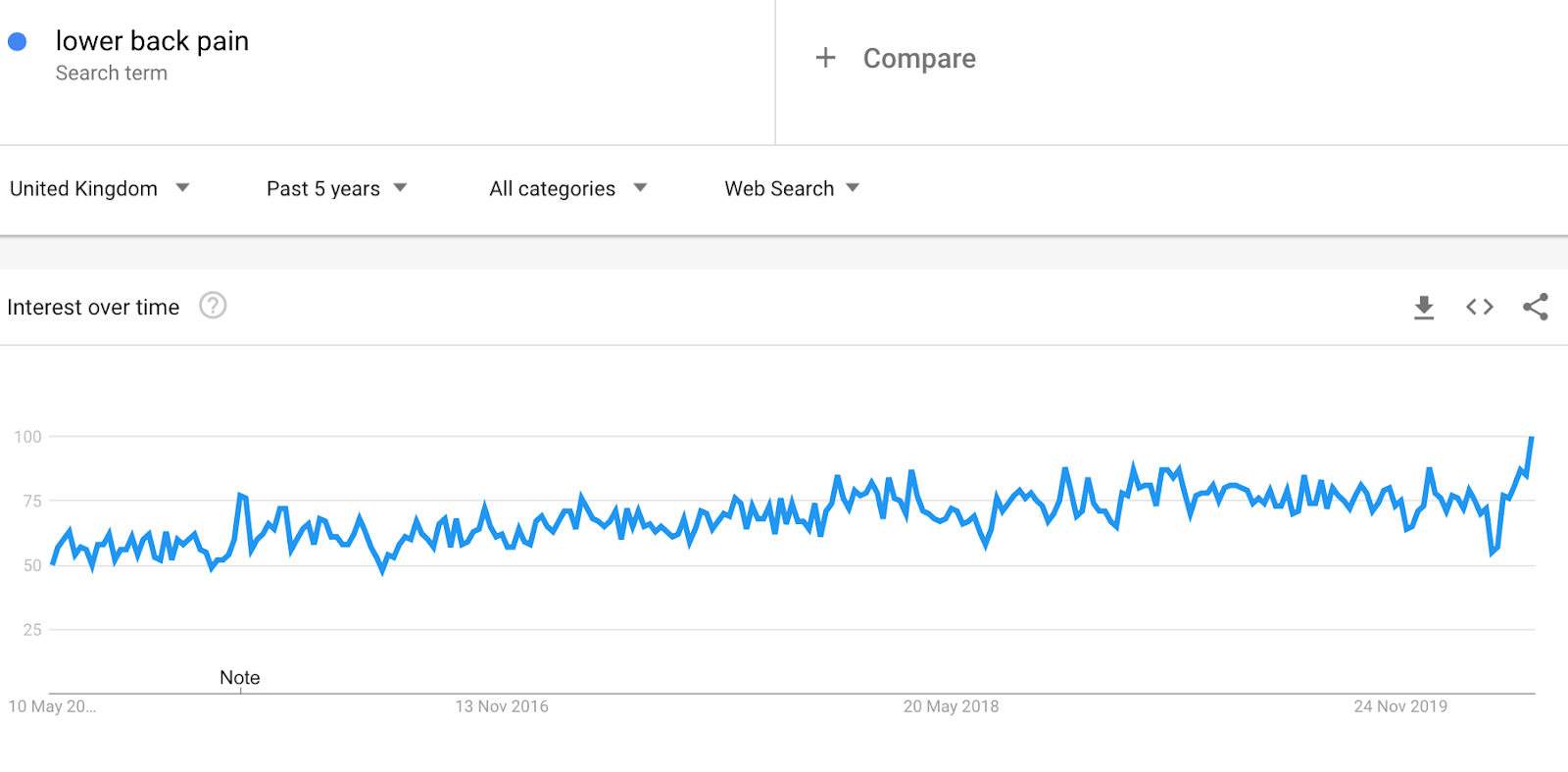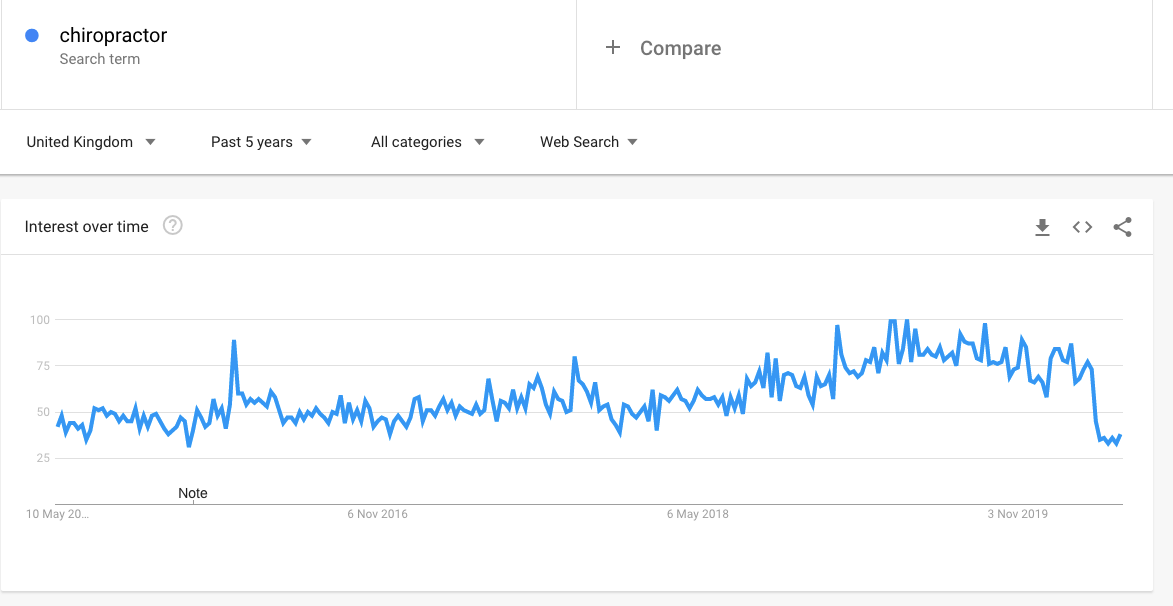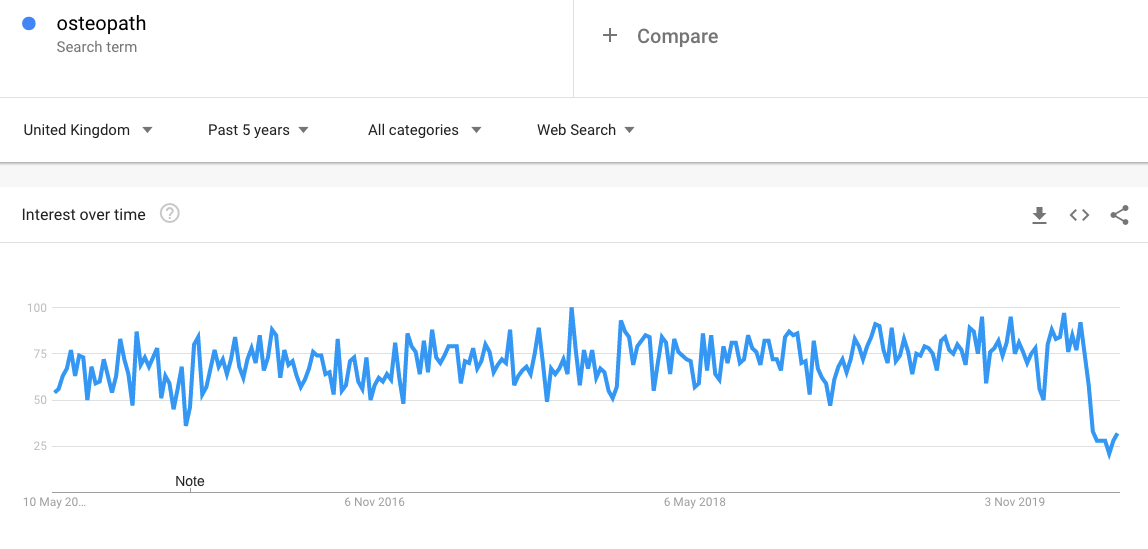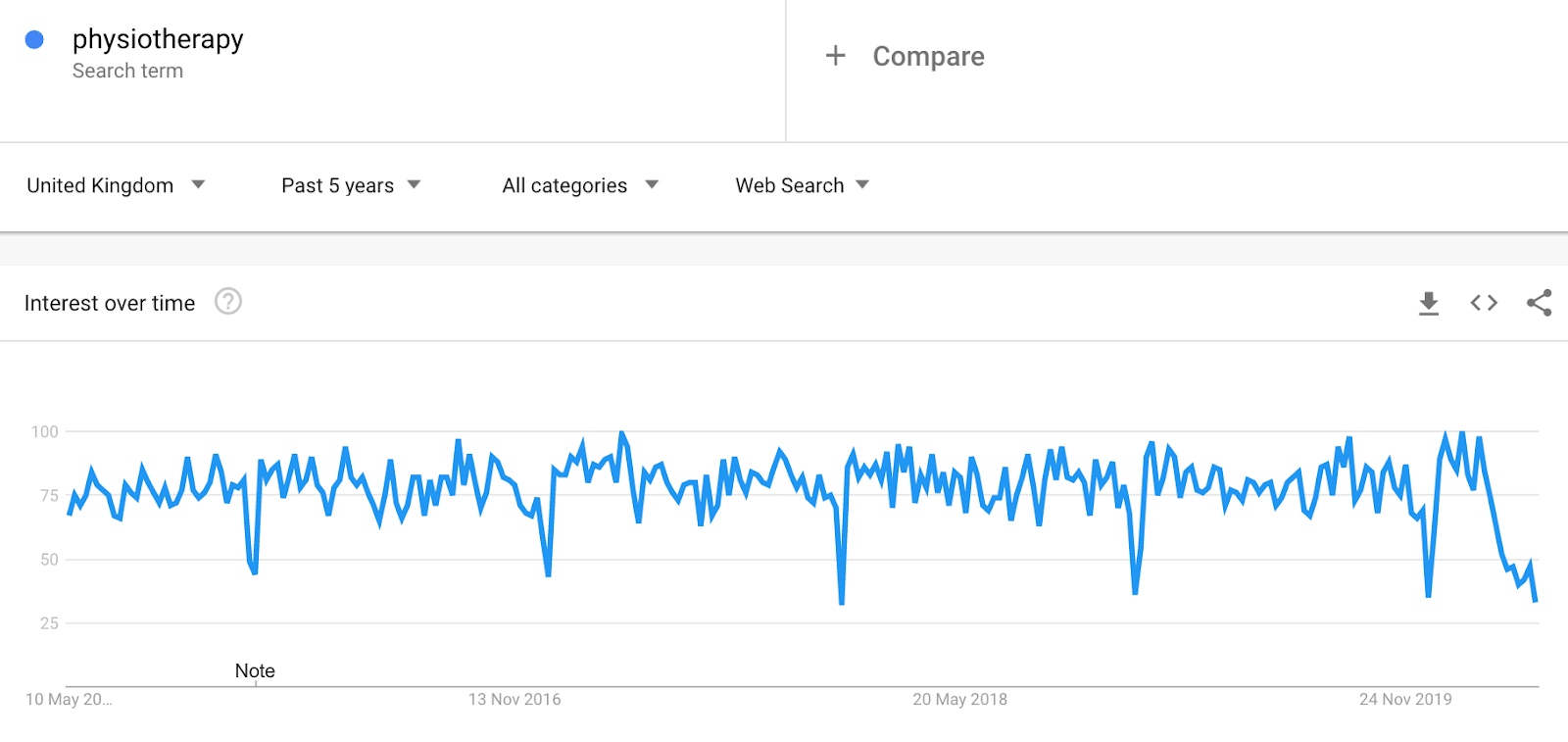News
The rise of the silent sufferers and getting checked
Over the last month of lockdown, there’s been a steady increase in people searching for terms such as ‘back pain’, coupled with a fall in those also searching out key medical terms such as ‘physiotherapy’.
Since home working began health professionals have been concerned with how people might cope both physically and mentally. This could potentially be giving rise to a series of silent suffers, those who feel their problem isn’t warranted to trouble a struggling health service with.
This has also been highlighted at a wider scale with evidence emerging that many medical conditions, such as cancer, are going undiagnosed due to people not wanting to visit the doctors. Whether that’s for fear of catching Covid-19 or not wanting to add increased strain on the health system.
For anyone who hasn’t heard of Google Trends before, simply put it’s a free tool anyone can use to understand the popularity of a search term. It often highlights trends in people’s search behaviour and can be used both professionally or at home. For example, we can look at whether more people search for ‘back pain’ or ‘neck pain’.

This tool isn’t only helpful in comparing the popularity of particular search terms, it can also show fluctuations across the years, on a week by week basis, to understand when there may be peaks in searches. This makes it a helpful tool for understand how search behaviour might have changed since the Covid-19 pandemic began.
Google Trends works gathering data to form larger trends, whether that’s global insight, or country and city-specific. It’s also important to note you can’t look at an individuals browser history, that breaks a multitude of data protection rules and violates a person’s right to privacy. To find out more information on how Google collects this data visit their FAQs about Google Trends data.
For those who are not familiar with what searcher behaviour is, it’s one of the first ways to gather insight on what’s important to people. Without getting too theoretical search behaviour could also be described as a type of information behaviour, first coined by Thomas D. Wilson in 1981. Wikipedia describes information behaviour as “a field of information science research that seeks to understand the way people search for and use information in various contexts. It can include Information seeking and information retrieval, but it also aims to understand why people seek information and how they use it”.
Analysing data from a five-year period Google Trends is showing a significant switch in searcher behaviour around key medical terms
Recently the media have highlighted that medical conditions such as cancer referrals have fallen, which is a shocking repercussion Covid-19 is having for health on a wider scale. We are too early to tell what other effects Covid-19 could be having on other health conditions, which is why Google Trends can be our first window into this.
There’s been a sharp rise in those working from home since the UK wide lockdown was enforced on Monday 23rd March 2020 and many believe that office staff will be some of the last workers to return their workplace. This overnight shift to homeworking has left a lot of people underprepared with unsuitable work stations, which is bound to lead to an increase in office-related health complaints.
Using Google Trends we can see there’s an uncharacteristic fluctuation in people searching for terms such as back pain and lower back pain. Two of the first indicators your office working posture is not correct.
Below we can see searches for the term ‘back pain’ over the last 5 years:

This term drops as Covid-19 and lockdown measures are first announced, however as lockdown continues the number of searches took a sharp rise.
This is also echoed in people searching for ‘lower back pain’:

Alongside this we’ve found searches for specialists who can help to treat this type of complaint has fallen at the same time:
Chiropractor

Osteopath

Physiotherapy

Indicating that many people are suffering, yet aren’t reaching out for help. Again highlighting the effect Covid-19 is having on people’s willingness to want to raise concerns to health professionals.
From these findings, we’re not saying too that everyone who’s searching for these terms would indeed need a healthcare professional to help alleviate their pain. However, searches for these health care professionals have reached a five year sustained low, with the only other dip during that period taking place during Christmas.
It’s important that the dialogue between health care professionals and the public is not closed. People should not feel not to suffer in silence.
Although health care, both public and private systems are under strain it’s still imperative these services are used by those who need it. So if back pain or any other condition has become unbearable it’s important to speak to those who can help. Many specialists are also offering online consultations so you can seek help whilst adhering to social distancing rules.
If you also feel your home working set up might be causing you pain it’s crucial you try to change it. Perhaps ask work if you visit and pick up your monitor, try a different chair or incorporate some light stretches into your daily routine. We recently published an article working alongside our Deputy Physiotherapy Manager, Roseanne Feinberg which highlights 5 top tips to stay healthy when working from home.
If you’re concerned about any potential health condition make sure you seek help from a qualified health professional, don’t become a silent sufferer.
Latest Hospital News
Should you wish to speak to our press team, please visit Press Enquiries



